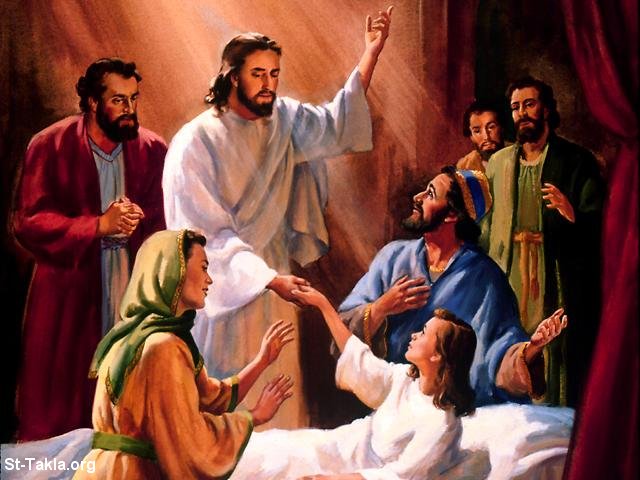Sabbath School Lesson for December 13-19, 2014
James closes his epistle with words of real encouragement for those needing healing of any kind. God is capable of performing miracles through the prayers of His faithful ones.
We are given insight into the kind of prayers needed for physical and spiritual restoration, and how God answers those prayers.
Keep in mind that Jesus Himself did not use miracles in certain circumstances while on earth. There were situations that did not lead to a miracle, such as when He was asked for:
- a miracle for entertainment’s sake (Luke 23:8, 9)
- a miracle to prove His divinity (Matthew 12:38-41)
- a miracle to satisfy His own needs (Matthew 4:2-4)
We must therefore be wary of prayers that are based in sensationalism, doubt, or selfishness. But James presents an invitation to pray for God’s will, combining it with sincere confession, that will help bolster God’s people for the remainder of our time on this earth.
Key Text: “Therefore, confess your sins to one another, and pray for one another so that you may be healed. The effective prayer of a righteous man can accomplish much” James 5:16 NASB
Why must there be confession, along with our prayers? Why does James use Elijah as a model man of prayer? Why don’t we always see a miracle, even after being anointed by elders in the church?
These and other questions will be answered this week.
Sunday: The Essential Christian Toolkit
“Is any among you afflicted? let him pray. Is any merry? let him sing psalms.” James 5:13 KJV
Prayer and praise are two Christian practices that should always be in our “toolkit”, so to speak. We do feel more like praying when we are suffering some hardship, and certainly singing is associated with happy times. But are these two connected more than we thought?
How many of us feel the press of some life burden bearing us down and have felt uplifted by hearing or singing just the right song? What would we do without sacred music that expresses so beautifully the thoughts of God toward us and our thoughts toward Him?
Someone has said that “Singing is as much an act of worship as is prayer. Indeed, many a song is prayer.” Ellen G. White, Education, p. 168.
This might explain why the book of Psalms is so popular and why many turn to it in times of need. The word psalm means “spiritual song”. David was gifted in expressing his prayers through music.
Songs can provide:
- inspiration
- encouragement
- direction
We must never overlook their value in the worship service. There will be a lot of singing in heaven. And even those who merely feel qualified to “make a joyful noise” here on earth will find their true voice in the heavenly choir.
Discussion Questions: Since music is similar to prayer and one of the avenues of communication between God and man, how does this magnify our choice of music? How has Satan used this “tool” to our disadvantage?
Since everyone has different tastes in musical style, what cautions should we use in denouncing or approving one style above another?
Monday: Prayer for the Sick
“Is any sick among you? let him call for the elders of the church; and let them pray over him, anointing him with oil in the name of the Lord: And the prayer of faith shall save the sick, and the Lord shall raise him up; and if he have committed sins, they shall be forgiven him.” James 5:14, 15 KJV
James was but speaking the directions that Jesus gave when He set out the disciples on their missionary endeavors. Mark 6:13 says, “And they cast out many devils, and anointed with oil many that were sick, and healed them.”
The word for oil in this verse is translated “olive oil”, so we can assume that is the type of oil used, as it symbolized the Holy Spirit and was used in the sanctuary service.
James was not implying through these verses that medical intervention by doctors was not to be used. On the contrary, doctors can be partners with God in the healing process.
Prayer and divine intervention should not be a “final resort”, after doctors have done all they can. The Holy Spirit can be and must be working throughout our medical journey.
Discussion Questions: How do you determine when the elders of the church should be called and anointing be done for someone facing serious health issues?
How important is faith to this process? Does our faith heal us?
What does it mean that “the Lord shall raise him up”? When would or could this happen? [the word raise here can be translated “to waken from disease or death”]
Tuesday: Healing for the Soul
“Confess your faults one to another, and pray one for another, that ye may be healed. The effectual fervent prayer of a righteous man availeth much.” James 5:16 KJV
It was no accident that James included the process of confessing and healing together. Both physical and spiritual healing are the desired outcomes. Our object in healing ministries isn’t just to make healthier sinners. It’s to impress upon the soul that God can heal us totally, body and soul.
In essence, every healing miracle that Jesus performed was a parable meant to teach us about salvation. They show us that God is the Great Physician and we don’t have to remain in our sin-sick state unless we choose to.
Confessing to each other implies that God desires our human relationships to be healed as well. This type of confession requires a dying to self, which is just the state we need, in order to effect our full salvation and healing.
Discussion Questions: Read Mark 2:1-12. What kind of healing did this palsied man, lowered down from the ceiling, receive? And why in this instance do you think Jesus forgave his sins first?
Read Matthew 13:15. Why does Jesus refer to our sins needing to be healed? What is the relationship between illness and sin?
Wednesday: Models of Prayer
“Elias [Elijah] was a man subject to like passions as we are, and he prayed earnestly that it might not rain: and it rained not on the earth by the space of three years and six months. And he prayed again, and the heaven gave rain, and the earth brought forth her fruit.” James 5:17, 18 KJV
These verses give us an example of what can happen with “the effectual prayer of a righteous man”. Even though Elijah was a righteous man to the point of going to heaven in a chariot of fire, he was not superhuman.
The verse says “he was a man subject to like passions as we are”. The Living Bible says he was “completely human as we are”. Not only was he righteous, but he lived during a time of great apostasy and idolatry in Israel’s history.
Elijah felt like he was the only holy man left in the nation, until God showed him otherwise on Mount Carmel. See I Kings 19:18. No wonder Elijah prayed so earnestly.
But the time it mentions of three and a half years of no rain is significant in the study of prophecy. Jesus mentions it in Luke 4:25.
“…in the days of Elias, when the heaven was shut up three years and six months, when great famine was throughout the land;” KJV
Without getting into a long prophetic study here from the books of Daniel and Revelation about “the midst of the week” (Daniel 9:27) or the “time, times, and dividing of time” (Daniel 7:25 and Revelation 12:14), Elijah and John the Baptist, who worked “in the spirit and power of Elijah” (Luke 1:17), both were earnest pray-ers. And their prayers accomplished much.
Discussion Questions: Read this quote: “Once a man was asked, ‘What did you gain by regularly praying to God?‘ The man replied,’Nothing, but let me tell you what I lost: anger, ego, greed, depression, insecurity, and fear of death.’ “ Are these losses actually gains?
What effectual, fervent prayers have you seen answered in your life?
Thursday: Restoration and Forgiveness
“Brethren, if any of you do err from the truth, and one convert him; Let him know, that he which converteth the sinner from the error of his way shall save a soul from death, and shall hide a multitude of sins.” James 5:19, 20 KJV
In speaking of John the Baptist, an angel told his parents, “And he will turn many of the children of Israel to the Lord their God. He will also go before Him in the spirit and power of Elijah, ‘to turn the hearts of the fathers to the children,’ and the disobedient to the wisdom of the just, to make ready a people prepared for the Lord.” Luke 1:16, 17 NKJV
We think of Elijah’s great contribution on Mount Carmel, but most of his work involved the schools of the prophets, where the training of Israel’s future spiritual leaders was accomplished in scattered, small villages across the land.
Both Elijah and John the Baptist focused on leading people back to God, one person at a time. And James describes our work as Christians after Jesus’ resurrection in much the same way. We are to call people to repentance and conversion.
This work requires self-sacrifice and love. We need Jesus’ forgiving spirit and the sin-covering love He provides. This is the total healing and restoration that God has in mind for each of us.
Discussion Question: What does James mean when he says we will hide or cover a multitude of sins by converting someone from the error of his way? Isn’t Jesus the only One who can cover our sin?
Summary
Prayer and confession are needed for divine healing and forgiveness. We must trust the Great Physician completely.
According to James 5:14-16, five steps can be followed when divine healing is needed:
- call the elders,
- anoint him with oil in the Lord’s name,
- pray with faith for healing, in God’s own timing,
- confess faults to each other,
- pray for each other to be healed and restored
There seem to be three possible times for divine healing to occur:
- immediately (as in the case of the paralytic, lowered through the roof, Matt. 9:1-6)
- gradually (as in the case of Naaman the leper, II Kings 5)
- at the resurrection (as in the case of Paul’s “thorn” in the flesh, II Cor. 12:7)
Both Elijah and John the Baptist had lives of faithful service and prayer that should be our model today, as we wait for the Lord’s Second Coming. They too lived in times of great apostasy and toiled ceaselessly to restore people to God.
Challenge
Do your best to reach out to someone this week who is in need of comfort for any illness, heartache, or burden. Give them a phone call, a card in the mail, bring them a loaf of bread, etc. Ask about their needs and if you can pray for them or let them know you are praying for them…and do!
Pick out some uplifting hymns and use them to bless either yourself or someone else. Think about the words as a prayer and also speak them out loud.
Next week–The Everlasting Gospel
To read the Sabbath School lesson quarterly and see other resources, go to www.ssnet.org











